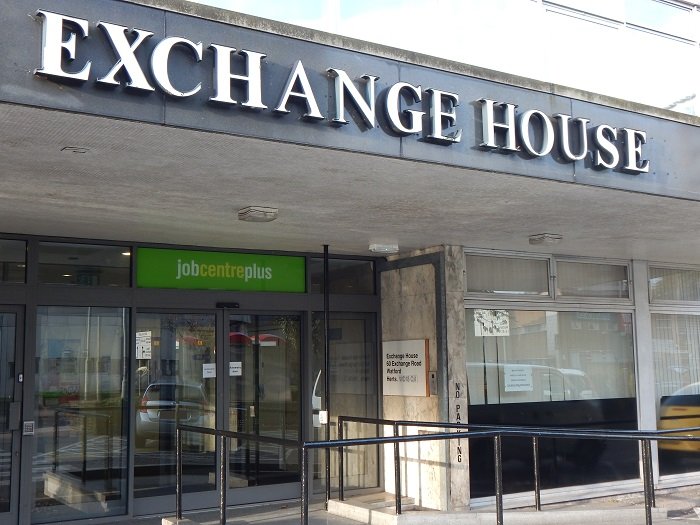
From today, Universal Credit will become available at the Watford jobcentre.
The new and ‘simple’ benefit system, which is predicted to boost national employment by 300,000, will be made available to Single jobseekers in Watford.
Universal Credit is a new benefit that aims to simplify the welfare system, help people to be better off in work, and save taxpayers over £1bn each year in reduced fraud, error and overpayments.
Universal Credit will be paid monthly. It will eventually replace Jobseeker’s Allowance, Income Support, Employment and Support Allowance, Working Tax Credits, Child Tax Credits, and Housing Benefit.
The latest research shows that Universal Credit claimants spend more time looking for work, move into work quicker and stay in jobs for longer compared to those on Jobseeker’s Allowance.
This means those using the benefit to help with housing will have to make payments themselves, rather than the old system which goes directly to council or social landlords.
The new system will also combine in and out of work benefits.
Graham Gillett, the Customer Service Operations Manager at Watford's Jobcentre, has already seen this system’s effectiveness and how well it has been received by claimants.
He said: "I think it’s a more effective way of doing things. It’s looking very promising and our customers seem to like the way that it works.
"Under JSA, if you work for more than 16 hours, your claim will stop. It’s possible you might think ‘I don’t want to do more than 16 hours because my claim will stop’.
"Whereas, under Universal Credit, you won’t need to worry about that. You can work up your hours until you won’t need the credit any longer.
"You can still be employed and have the claim, it just evens out with the amount you earn."
What is #universalcredit? Watch this short video to find out in 1 min & 39 secs https://t.co/RQCQxc3aeK
— WatfordJCP (@WatfordJCP) November 23, 2015
Universal Credit takes a 6 week assessment period to process claims. This has met a national backlash, with many suggesting it "has left some claimants penniless, stressed, forced to borrow cash to pay rent or utility bills and struggling to buy food" during that waiting period.
Research by the Citizens Advice shows that half of low paid workers are paid weekly nationwide, meaning they must last for six weeks on a single week’s money under Universal Credit.
According to a spokesman at the DWP, over three-quarters of British workers are paid monthly, and Universal Credit is designed to mirror the world of work.
"The vast majority of Universal Credit claimants are confident they can manage monthly payments'" he said. "We ensure that our Jobcentre work coaches discuss budgeting support with claimants at their very first work search interview.
"We are also working closely with Local Authorities, social landlords, voluntary groups and other organisations such as the Money Advice Service to ensure that our claimants receive extra help to manage their finances."
With access to HMRC’s real time earnings data, benefit payments can now be calculated exactly, and adjusted automatically to eliminate overpayments and ensure people receive the correct level of support both in and out of work.
As the new system is digital, over 26,000 DWP staff nationwide, including Watford’s, have been trained accordingly to provide job coaching, expert help and advice to encourage and motivate claimants in their search for work.
For more information about Universal Credit, visit the DWP website, or visit Watford's Jobcentre.
Written by Isaac Ouro


 The Top TV Shows And Films To Watch On Christmas Day & Throughout The Week (22nd - 26th Dec 2025)
The Top TV Shows And Films To Watch On Christmas Day & Throughout The Week (22nd - 26th Dec 2025)
 Grillo's Grotto in Watford raises money for charity with festive light display
Grillo's Grotto in Watford raises money for charity with festive light display
 The Top Five Films and TV Shows to Watch this Week (15th - 19th December 2025)
The Top Five Films and TV Shows to Watch this Week (15th - 19th December 2025)
 Jack and the Beanstalk Returns to Watford Palace Theatre this Christmas
Jack and the Beanstalk Returns to Watford Palace Theatre this Christmas
 Campaign launches in Hertfordshire to help young people understand the risks of vaping
Campaign launches in Hertfordshire to help young people understand the risks of vaping
 The Top Five Films and TV Shows to Watch this Week (8th - 12th December 2025)
The Top Five Films and TV Shows to Watch this Week (8th - 12th December 2025)
